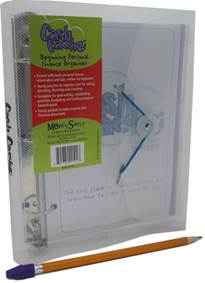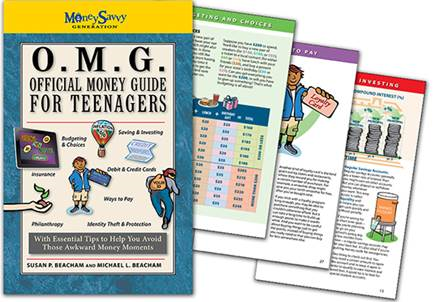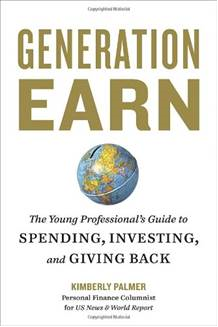Yeske Buie’s Financial Literacy Program

Financial Literacy is a widely under-taught subject matter in the education of today’s youth. Some students can go through their entire education, including college, without some of the most basic financial knowledge required for them to succeed. As a result of the lack of financial classes provided in formal education, the responsibility of teaching children about financial basics falls on the parents and families. It is also fascinating to note how your children and grandchildren can be consciously and subconsciously affected by how you think and feel about money, also referred to as “money memories.”
Just for fun, how would you complete the following statements?
- The money lessons I learned from my mother were _______________.
- The money lessons I learned from my father were _______________.
Did anything jump out to you? We’d love to hear more about your answers, and may ask at your next meeting!
Understanding the pressure you may feel to ensure your children and grandchildren are set up for financial success, we’ve put together a Financial Literacy program to help you and the ones you hold dear. We’ve put together a series of tools that can help educate and facilitate conversations about money and finance.
 We start at around 3 years old with the Money Savvy Piggy bank. It’s not just any ordinary piggy bank, as it has four slots to put money into – Save, Spend, Donate and Invest.
We start at around 3 years old with the Money Savvy Piggy bank. It’s not just any ordinary piggy bank, as it has four slots to put money into – Save, Spend, Donate and Invest.
Yeske Buie’s Simple Tips:
- Start early! This does not mean you need to try teaching a 3 year old about retirement accounts and mutual funds. However, the simple gift of a Piggy Bank can be a great introduction to money and give the child a sense of ownership.
- Teach money choice
 A few years later when the child is entering 3rd/4th grade, they receive a Cash Cache. This binder is filled with personal finance tips and builds on the foundation of the piggy bank, going into more detail about the money choices they face. It provides resources for setting goals and budgeting.
A few years later when the child is entering 3rd/4th grade, they receive a Cash Cache. This binder is filled with personal finance tips and builds on the foundation of the piggy bank, going into more detail about the money choices they face. It provides resources for setting goals and budgeting.
Yeske Buie’s Simple Tips:
- Set goals
- Make smart decisions
 In middle school, we’ve recently introduced a new book – “O.M.G Official Money Guide for Teenagers.” The chapters cover introductions to investing, credit cards, insurance, identity protection and more. It also includes tips to help teens avoid “awkward money moments.”
In middle school, we’ve recently introduced a new book – “O.M.G Official Money Guide for Teenagers.” The chapters cover introductions to investing, credit cards, insurance, identity protection and more. It also includes tips to help teens avoid “awkward money moments.”
Yeske Buie’s Simple Tips:
- Take ownership of your money
- Talk about it
 As students begin thinking about what their next steps will be after high school, our financial literacy program shifts focus to an interactive book that is developed to help the teenager define their interests and unique passions. Aimed at providing big-picture advice about college, the potential costs associated with it, and how it can translate into a successful career path.
As students begin thinking about what their next steps will be after high school, our financial literacy program shifts focus to an interactive book that is developed to help the teenager define their interests and unique passions. Aimed at providing big-picture advice about college, the potential costs associated with it, and how it can translate into a successful career path.
Yeske Buie’s Simple Tips:
- Prepare for the future
- Life is about decisions and trade-offs
 High School graduation is a big milestone and a celebration of a student’s future. To congratulate high school graduates, we send the students a copy of 5: Where will you be five years from today? We believe that this tool will help the student become more knowledgeable about themselves and where where they are headed. It contains thought-provoking questions and real-life examples that we hope will be a spark and perhaps a road map for what is exciting in their life. The author of the book says, “The purpose of this book is to stir your creative juices and to inspire you to really get in touch with your dreams.”
High School graduation is a big milestone and a celebration of a student’s future. To congratulate high school graduates, we send the students a copy of 5: Where will you be five years from today? We believe that this tool will help the student become more knowledgeable about themselves and where where they are headed. It contains thought-provoking questions and real-life examples that we hope will be a spark and perhaps a road map for what is exciting in their life. The author of the book says, “The purpose of this book is to stir your creative juices and to inspire you to really get in touch with your dreams.”
Yeske Buie’s Simple Tips:
- Graduation is a time of celebration of all the things you want to do, choose to do, and can’t wait to do in your life.
- You are the hero of your story and we hope this tool helps you on your journey.
 Last, but certainly not least, we provide college graduates with the book “Generation Earn” in order to equip them with the practical information that may have been lacking from their studies. This guide to “real world” knowledge covers “every major decision they’ll have to make to create a successful life.”
Last, but certainly not least, we provide college graduates with the book “Generation Earn” in order to equip them with the practical information that may have been lacking from their studies. This guide to “real world” knowledge covers “every major decision they’ll have to make to create a successful life.”
Yeske Buie’s Simple Tips:
- Time is money
- Knowledge is power
In addition to these resources that we’ve shared with you here, it is important to emphasize the power of just talking about money with your children and grandchildren and we’re happy to help facilitate! We’ve enjoyed our experiences meeting with families together, children separately or young children as observers for during their parent’s meeting.
